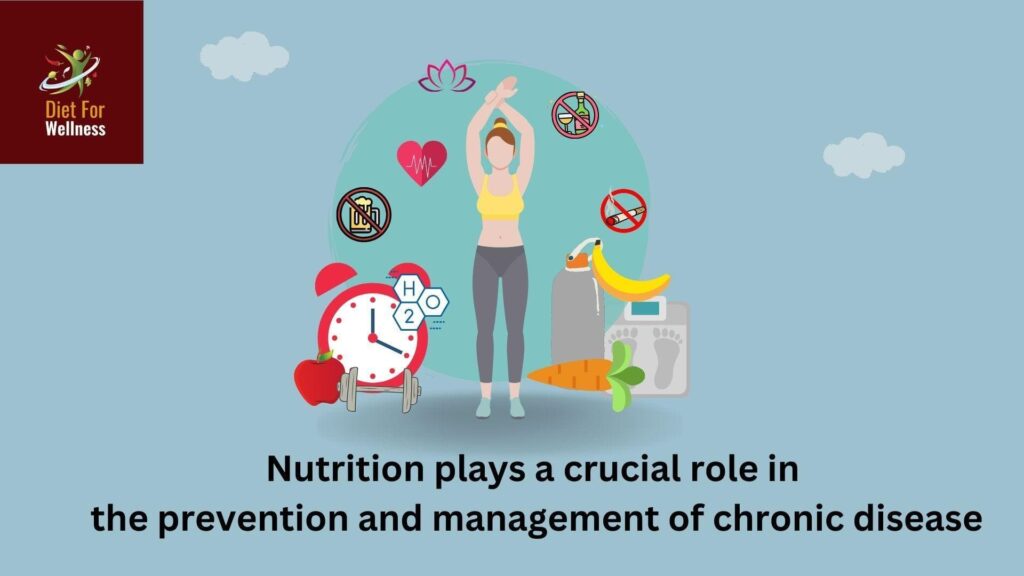The Power of Nutrition in Reversing Chronic Disease

Promoting a healthy diet among patients is crucial for preventing and reversing chronic diseases like cardiovascular disease (CVD), diabetes, cancer, and obesity, as emphasized in a presentation at the ACP Internal Medicine Meeting.
Chronic diseases like heart disease, diabetes, obesity, and certain types of cancer are among the leading causes of death worldwide. These conditions often develop over time due to a combination of genetic, environmental, and lifestyle factors. While medical interventions play a crucial role in managing chronic diseases, emerging research suggests that nutrition can also be a powerful tool in reversing these conditions. In this blog, we’ll explore the impact of nutrition on chronic disease and how dietary changes can help to reverse their progression.
Chronic diseases are conditions that last for a long and typically progress slowly over time. They are often characterized by inflammation, insulin resistance, oxidative stress, and other underlying metabolic dysfunctions. While genetics can predispose individuals to certain chronic diseases, lifestyle factors such as diet, physical activity, and stress management play a significant role in their development and progression.
The Role of Nutrition
Nutrition is essential, and what we eat can either fuel disease or promote healing and wellness. Research has shown that certain dietary patterns are associated with a lower risk of chronic disease and can even reverse their progression.
The main components of a disease-reversing diet are
Plant-Based Foods- A diet rich in fruits, vegetables, whole grains, legumes, nuts, and seeds provides essential vitamins, minerals, antioxidants, and fiber that support overall health and reduce inflammation.
Healthy Fats- Consuming sources of healthy fats such as avocados, olive oil, fatty fish, and nuts can improve cholesterol levels, reduce inflammation, and support cardiovascular health.
Lean Protein- Incorporating lean sources of protein such as poultry, fish, tofu, and legumes can help maintain muscle mass, support weight loss, and regulate blood sugar levels.
Limiting Processed Foods- Highly processed foods high in refined sugars, unhealthy fats, and additives can contribute to inflammation, insulin resistance, and weight gain. Avoiding these foods and opting for whole, minimally processed options is key to reversing chronic disease.
Nutrition plays a crucial role in the prevention and management of chronic disease. While dietary changes alone may not be sufficient for everyone, they can significantly complement medical treatments and improve overall health outcomes. Empowering individuals with the knowledge and resources to make healthier food choices is essential for combating the global burden of chronic disease and promoting a healthier, more vibrant society.
A nutrition coach can be an invaluable ally on the journey to reversing chronic disease through diet. These professionals are trained to assess individual dietary habits, identify areas for improvement, and develop personalized nutrition plans tailored to specific health goals. Diet for Wellness has expert nutrition coaches in the team who can provide education on the principles of healthy eating, offer practical tips for meal planning and grocery shopping, and offer ongoing support and accountability to help individuals stay on track. They can help navigate dietary challenges, address nutrient deficiencies, and modify meal plans as needed based on progress and feedback.
